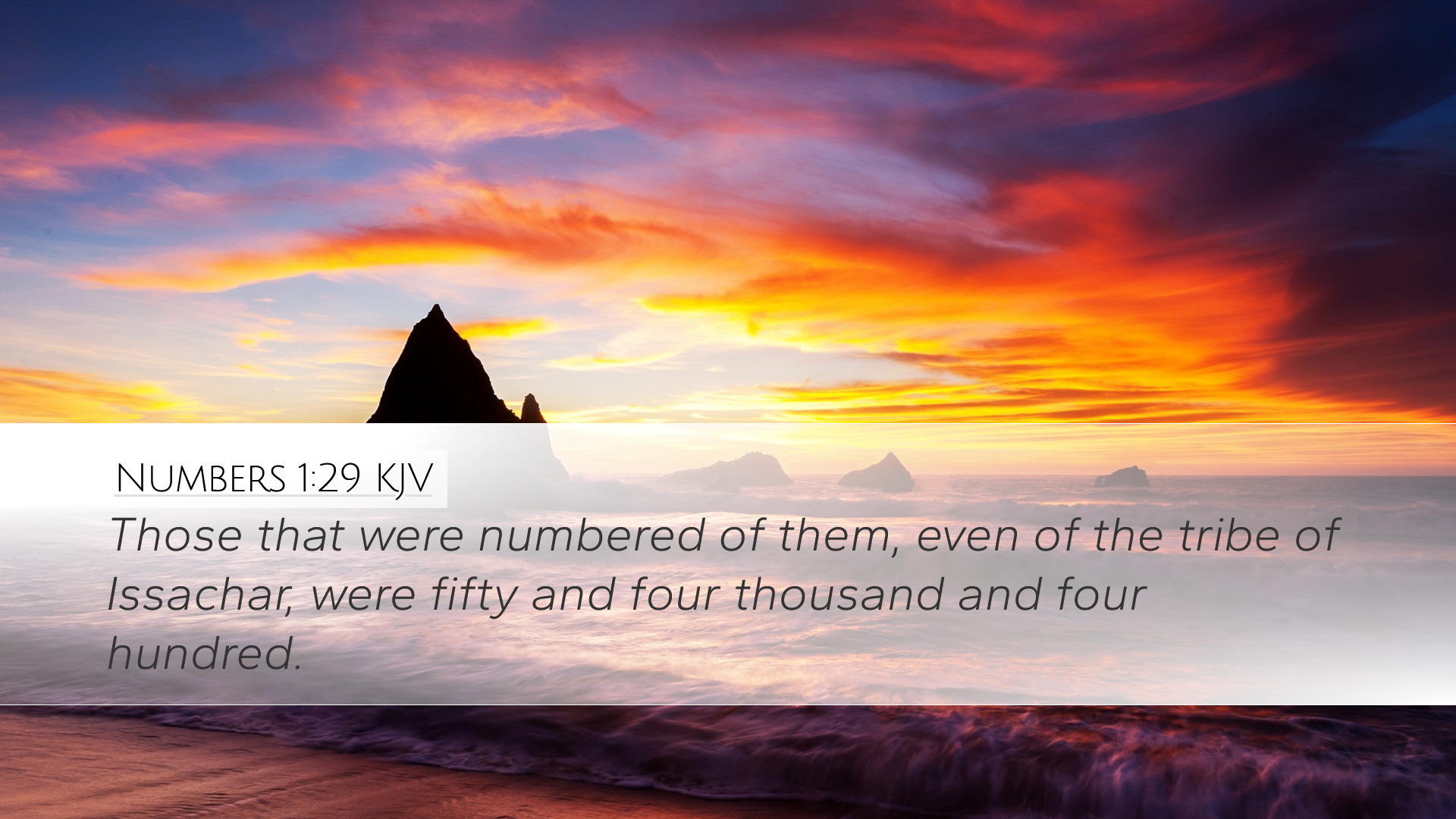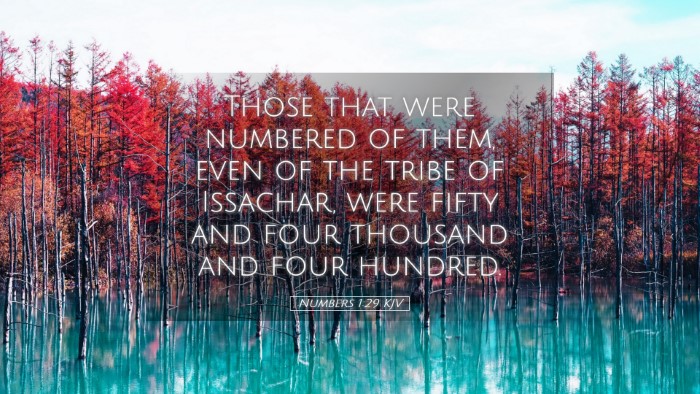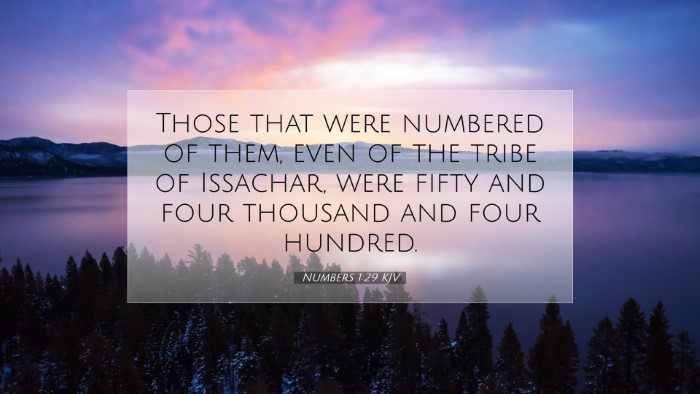Bible Commentary on Numbers 1:29
Verse: "Of the children of Judah, by their generations, after their families, by the house of their fathers, according to the number of the names, from twenty years old and upward, all that were able to go forth to war;" (Numbers 1:29)
Contextual Overview
The Book of Numbers, named for its census of the Israelites, serves as a crucial link between the Exodus and the Israelites' conquest of Canaan. In this passage, we see the enumeration of the tribe of Judah, which holds a significant position among the tribes of Israel.
Insights from Matthew Henry's Commentary
Matthew Henry emphasizes the importance of organized structure within the community of Israel. He notes that the tribe of Judah was called first, perhaps due to its prominence as a royal lineage from which David, and ultimately Jesus, would descend.
- The Generational Responsibility: Judah’s genealogical listing highlights their significant role in the legacy of Israel. Henry points out that such a structure is vital for understanding heritage and God’s faithfulness across generations.
- Preparation for Battle: The criterion of being "twenty years old and upward" to be counted for war purposes illustrates the readiness of the young men who are capable and strong to take part in Israel’s defense. Henry interprets this as a principle that society must prepare its youth for the responsibilities of life.
Reflections from Albert Barnes' Notes
Albert Barnes provides additional context regarding the significance of Judah. He notes the tribe’s readiness for military engagement and suggests that such organization was crucial for the nation's survival and success in their journey.
- Significance of Judah: Barnes remarks on the honor and strength associated with the tribe of Judah. Being presented first among the tribes highlights their leadership and the expectation of spiritual and martial fidelity.
- Age of Accountability: Barnes draws attention to the specific age of twenty, suggesting a biblical principle of accountability and preparedness that could be applied to contemporary understandings of maturity within the faith community.
Analysis from Adam Clarke's Commentary
Adam Clarke focuses on the statistical aspect of the census, commenting on the need for precise record-keeping in the governance of the Israelites. He emphasizes the role of divine order in the preparation for entering the Promised Land.
- The Divine Command: Clarke stresses that the command to take a census was divinely mandated, serving a purpose beyond mere numbers; it was a matter of divine organization and strategic planning.
- War Preparedness: Clarke brings forth that counting the men able to "go forth to war" emphasizes the necessity for the Israelites to be vigilant and ready to defend their nation against opposition, reinforcing the enduring principle of preparedness in leadership.
Theological Implications
The enumeration of the tribe of Judah holds profound theological implications:
- God’s Sovereignty: This passage showcases God's sovereignty in choosing and empowering His people. Each name counted signifies individuals known and valued in God's plan.
- Church as the New Judah: The New Testament believers can be seen as the continuation of this legacy, where God's people, like Judah, are called to be witnesses and gather as one body for spiritual warfare.
- Importance of Community: This verse teaches that community organization and accountability are essential in the body of Christ, where members are encouraged to support each other in spiritual growth and readiness.
Conclusion
Numbers 1:29 presents a rich tapestry of themes including leadership, organization, and forensic preparation for the tasks ahead as God’s people. For pastors, students, and theologians, this verse serves as a foundation for discussions on spiritual readiness, community structure, and the importance of each member within the body of Christ. As the Church navigates its own journey today, the lessons from Judah’s enumeration remind us to cherish our heritage, prepare our youth, and recognize the call to unity and readiness in the face of spiritual challenges.


